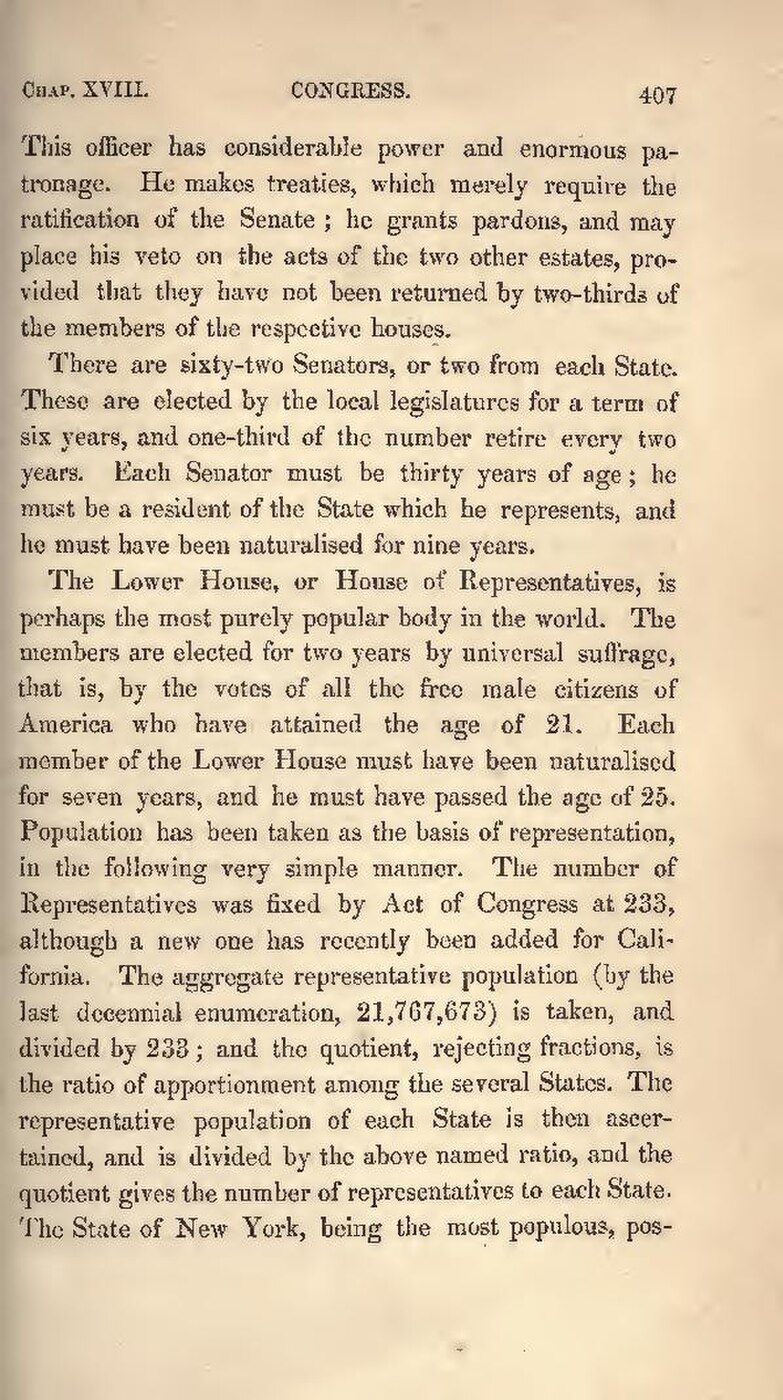This officer has considerable power and enormous patronage. He makes treaties, which merely require the ratification of the Senate; he grants pardons, and may place his veto on the acts of the two other estates, provided that they have not been returned by two-thirds of the members of the respective houses.
There are sixty-two Senators, or two from each State. These are elected by the local legislatures for a term of six years, and one-third of the number retire every two years. Each Senator must be thirty years of age; he must be a resident of the State which he represents, and he must have been naturalised for nine years.
The Lower House, or House of Representatives, is perhaps the most purely popular body in the world. The members are elected for two years by universal suffrage, that is, by the votes of all the free male citizens of America who have attained the age of 21. Each member of the Lower House must have been naturalised for seven years, and he must have passed the age of 25. Population has been taken as the basis of representation, in the following very simple manner. The number of Representatives was fixed by Act of Congress at 233, although a new one has recently been added for California. The aggregate representative population (by the last decennial enumeration, 21,767,673) is taken, and divided by 233; and the quotient, rejecting fractions, is the ratio of apportionment among the several States. The representative population of each State is then ascertained, and is divided by the above named ratio, and the quotient gives the number of representatives to each State. The State of New York, being the most populous, pos-
